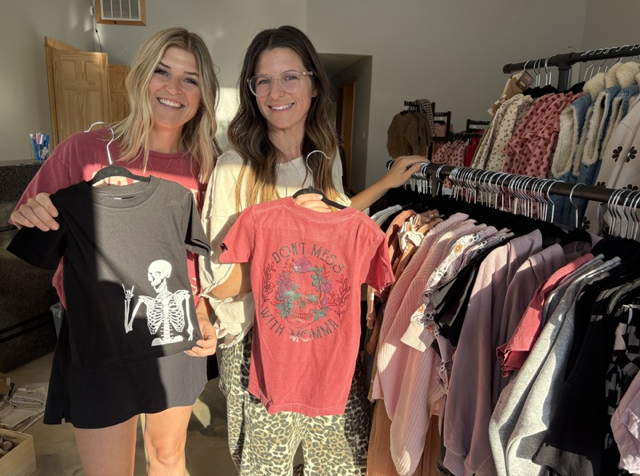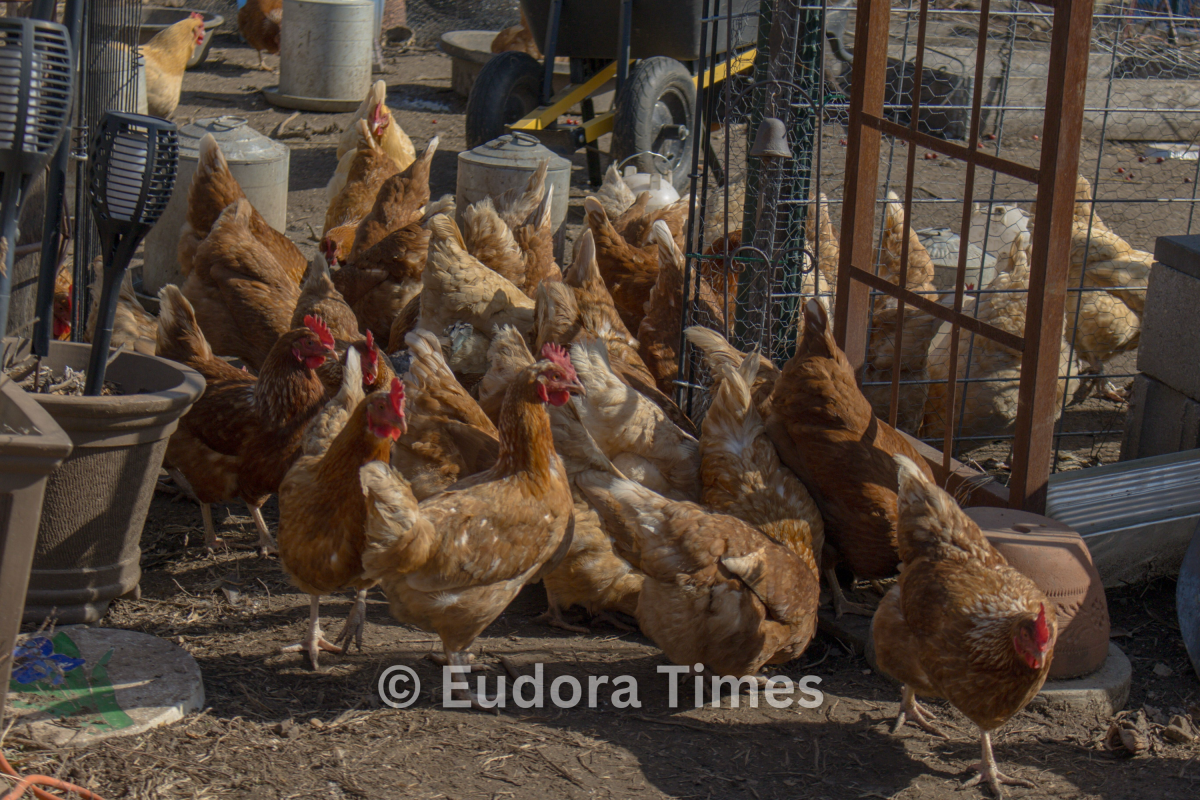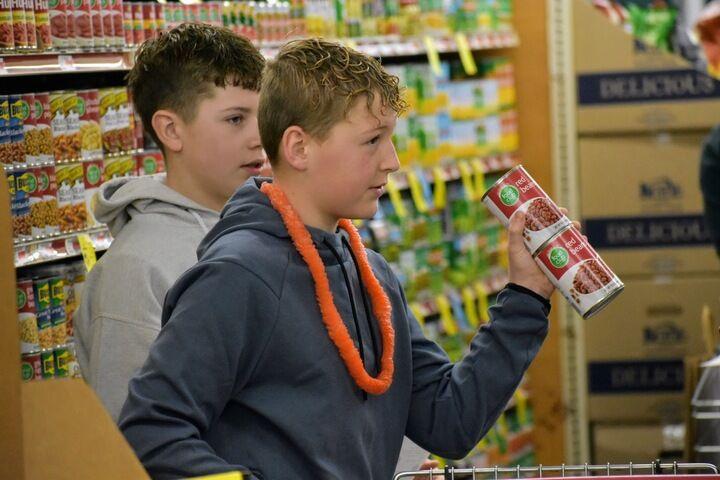For Kathy Weld, finding 130 eggs hasn’t been fun.
That’s how many Zeb’s Coffeehouse goes through every week, but buying them lately isn’t easy. Rather than picking up large batches of eggs from a restaurant supply vendor, they may have to drive around collecting dozens from various grocery stores.
As egg prices rise due to bird flu that has wiped out more than 20 million chickens in recent months, local businesses are seeing the impacts as their profit margins narrow.
Prices for eggs have increased 50% in the last year, NBC reported. In mid-January, a dozen cost $5.29 compared to $3.50 a year ago.
Weld looked back at costs and found Zeb’s is spending 48% more on eggs. It’s tight on them financially to have to take on that extra cost, she said.
“That makes a big difference to our profitability when our costs increase that much, and we really try to keep our prices as low as we can,” she said.
Weld is hoping to avoid increasing prices for customers, but if egg prices don’t let up soon, that may change.
When the coffee shop is able to place orders for pick-up at supply vendors, that doesn’t necessarily mean the eggs will be there when Weld arrives.
Sometimes they’ve had to order different sizes of eggs, which means recipes have to be altered to account for large eggs rather than extra large eggs, for example, Weld said.
There have been times they have run out of breakfast burritos because there were no eggs available.
Gene’s Heartland Foods is also seeing smaller profit margins while trying to keep prices low for customers, manager Lance Handley said.
Gene’s is selling eggs for only about 20 cents over what it pays for them, Handley said.
They’re also only getting in about half of the eggs they usually would, so they are running out occasionally. Handley estimates they’re selling about the same amount as usual, though.
Due to the limited amount of eggs available, they can only get one case of each size. Each case has about 30 dozen. Right now, they’re averaging about 200 dozen per order. They have no problem getting as many brown eggs as they need, though. Gene’s receives orders twice a week.
Gene’s has no limit on the number of eggs that people can purchase.
Customers are expressing concern about the egg prices quite often, he said. The problem will most likely persist for a while due to how many birds had to be killed off due to the flu, he said.
The avian flu is also affecting local farmers.
Although Jamie Knabe’s chickens are not currently producing, it’s still concerning to see prices rising – especially because she doesn’t want to raise prices and see others also raise theirs.
Knabe, owner of Country Road Farms, sells her eggs at various markets and has been charging $5 per dozen, which is similar to others in the area.
Some farmers keep lights on their chickens so they’re able to produce all year, but Knabe expects hers will begin laying as the sun comes out more.
Another issue that arises with the bird flu is the cost for replenishing flocks. It becomes more expensive to purchase chicks, something Knabe will need to do this year as some of her hens get older.
Farmers are frustrated when they can’t fulfill what customers want.
‘It’s frustrating for the consumer, because – and like me – I don’t want to buy eggs from the grocery store. I want farm fresh eggs,” she said.
Prices for eggs also depend on feed prices, she said.
Cari Werner and David Goetsch of Hawk N’ Cat Farm, a farm outside of Eudora, agreed the price for replacement chicks has gone up and reached a tighter supply.
When they recently received an order of chicks, many died due to backups in transit. A lot of people are wanting chicks right now and another order could take a month, but they need new chicks to help with fall production, she said.
Small farmers are in the best position to have biosecurity to keep the flu away from chickens, she said.
“We can keep the feed where wild birds don’t get in there. We can protect our flock by giving them healthy food and giving them room to grow and room to roam a little bit,” she said. “And so I think that’s going to be kind of our saving grace, if there is any.”
In order to have eggs year round, they’ve had to double the electricity bill to keep the lights on for the chickens to produce. Even though they upped the price to around $6 a dozen, they’re not profiting much off eggs. Prices for feed and other supplies are also trending up, Werner said.
Their farm also has bees, turkeys and produce to sell at farmers markets during the season. In the winter, Cottin’s Hardware in Lawrence sells their eggs inside. There is also a weekly indoor market at the hardware store, which helps, too.
Their chickens can produce over five dozen eggs per day. They’ve been raising chickens to sell eggs since they moved to rural Douglas County about five years ago, Werner said.
Werner thinks more people are reaching out to her because they’re interested in farm-to-table products.
“We’re trying real hard, and it’s a learning experience and there’s a lot involved with raising chickens, especially when the weather’s this cold,” she said.
The problem has not had an impact on Eudora schools because none of their homemade meals or baked items have eggs due to how common allergies are, Food and Nutrition Director Nicole Parks said.
Students do have an option to occasionally get breakfast sandwiches with egg, but these come pre-packed and do not have to be made by kitchen staff, she said.
Main Street Scoops and Sweets is seeing changes across the board due to increased egg and butter prices.
Baker Brooke Blubaugh has had to make incremental price increases to some of the bakery items that use more eggs.
The shop’s ice cream, which comes from Wisconsin, will also be seeing increases, requiring the shop to increase prices on that as well.
“They use fresh dairy from local, local dairy farmers up there, and then, of course, eggs to make their ice cream base. So we’ll be having to, unfortunately, be raising prices as well to then offset that cost,” Blubaugh said.
Instead of buying bulk eggs at Costco, the shop buys in smaller quantities from grocery stores. If it was a week with more custom orders, they’ll stock up as needed, but for the most part they’ll purchase an 18 count.
Blubaugh said it also helps that the shop does not specialize in desserts that use a lot of eggs, like some other bakers.
Her recipes for cakes, cupcakes and cookies don’t require many eggs, something she is grateful for. Macarons, though, use egg whites leading to a slight price increase, Blubaugh said.
“It’s just, I know that’s really just affected everyone overall. The economy in general, everyone’s had, I think, a rougher past year than before,” she said.
Reach reporter Sara Maloney at [email protected].
David Goetsch of Hawk N’ Cat Farm collects eggs from he and his wife’s 70-80 producing chickens.















































